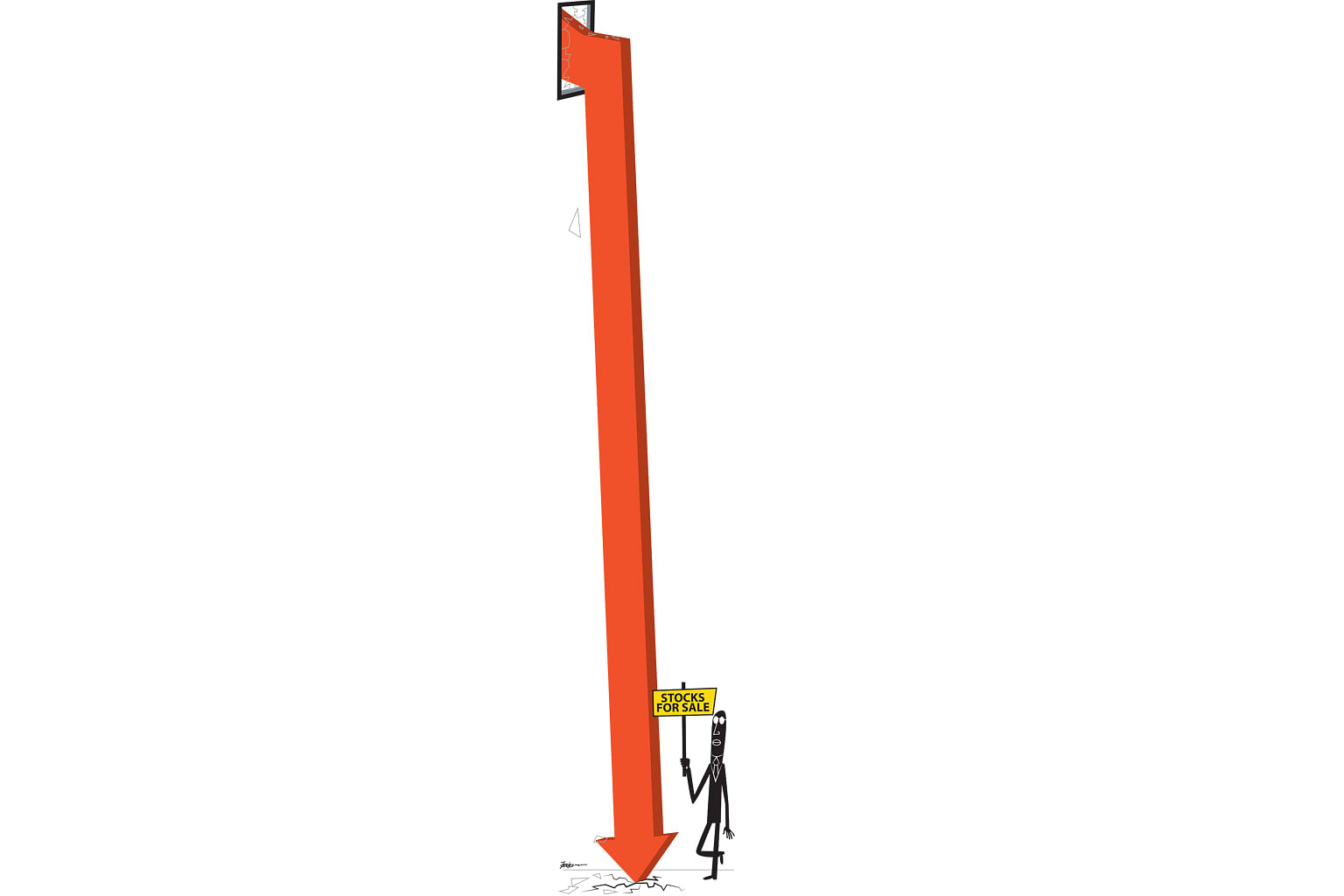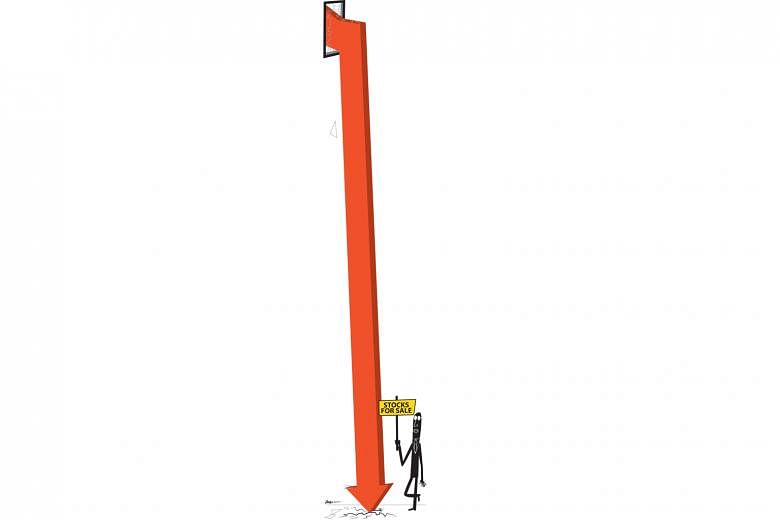The investor's worst enemy, you might say, is likely to be himself.
This observation, made by the late investment guru Benjamin Graham, flashed through my mind as I read an article in which DBS Bank chief investment officer Lim Say Boon recounted selling a large chunk of his banking stocks early last year as market sentiment turned sour.
While he initially saved himself some money as share prices plunged further, the problem was that he never bought back what he had sold - and this failure caused him to miss out on the upside when the stocks later rebounded.
"If I had done nothing, my stocks would have been worth more today than at the start of the year," he said.
Mr Lim's experience is not unique. I am sure that most of us have a similar unfortunate tale - in some cases, more than one - about our stock investments.

Unless we are full-time traders, one reason most of us invest in the stock market is to try to achieve a higher return than what insurance life policies or bank deposits can offer us.
But we are also petrified of losing any part of our hard-earned nest egg on the stock market, because of the way we are wired. That is why we feel the pain of losing $1,000 a lot more than we feel the joy of receiving the same amount from a winning stock bet.
Yet, despite our fears, we are constantly on the lookout for the proverbial silver bullet to make money in a quick and easy manner on the stock market - preferably without taking any risks at all.
This is not a failing confined to average mum and dad investors. Even some professional fund managers suffer from it as well.
In a survey two years ago of 724 investment professionals on the most common behavioural biases that can hurt investment decisions, the CFA Institute noted that chasing hot stocks got 34 per cent of the vote.
Does this surprise you? Many investors fall into the trap of chasing after the next sexy stock to appear on their trading screen without doing any research on what they are going after.
But when the story which lured them into loading up on the stock fails to pan out, they fail to switch on their trader mentality and get out of the counter fast.
Instead, they become transfixed like a rabbit in headlights, either doing nothing or loading up even more on the counter, deluded by the argument that it is even cheaper now as its share price has fallen so much.
For such counters, a turnaround does occur occasionally, but not often enough. In other words, an investor may find himself better off cutting his losses, instead of throwing good money after bad.
That brings me to the negative investment trait that secured the second-highest number of votes (20 per cent) from the survey respondents: confirmation bias.
When we buy into a stock, we tend to seek confirmation for our investment decision by looking up material that supports our opinion.
Sounds familiar? One argument frequently used to promote the next sexy stock to you is that some prominent investment experts are also knee-deep in the same counters - and for that reason alone, you should also be a buyer.
Blindly following them may possibly be the worst reason for buying a stock. Like all other people, these experts are not infallible. Some of their predictions may be right but others may turn out to be horribly wrong.
What they do have is the ability to take any investment mistakes in their stride because they have plenty of money in the bank. It is a luxury which you may ill afford because you don't have that kind of spare cash to burn.
Instead, to know whether a stock is worth investing in, you have to look not just at the reports that support views of the firm's long-term value but also counterarguments against investing in it. Ignoring a critical opinion is one sure way of losing money if it turns out to be right.
All great stock pickers follow a similar formula, whatever methodology they use to value a stock. They make an independent calculation of what a company is worth, based on sales, earnings, cash flow, dividend and prospective profits. Then they check the price.
If the stock is trading above their valuation, they give it a miss. If it is trading at a substantial discount, they start nibbling at the counter, commencing purchases in a small way. They don't let their emotions take charge over how the stock price performs after they make their purchase. Nor do they worry about the next stock-market crash.
They understand that time and compound interest are important considerations in helping them to build their wealth. And if the market acts silly, they view such a calamity as an opportunity to buy even more of the same stock at a much better price. That, in turn, would hopefully give them an even bigger gain eventually if they turn out to be right.
Having done all that, they continue to keep a watchful eye on the stock to make sure that the reason for buying it in the first place stays valid. If they do encounter any deteriorating fundamentals, that is the time to get out of the stock.
What I have described is easier said than done. I get wobbly in the knees myself, calculating the drop in the value of my stock portfolio whenever the market is engulfed in turmoil. One piece of advice I was given is not to look at my portfolio too often. That way, I don't feel tempted to trade in and out of my positions as share prices gyrate.
There is also the big urge to sell as the price goes up, because we are worried that we may miss out on profit if there is a subsequent price correction. What should you do in such a situation?
One way to relieve the pain is to sell small tranches of shares as the price goes up. It keeps you in the game and it assuages the worry that you are somehow missing out on the rally.
One final point: Now that the new trading year has begun in earnest, you will find plenty of fund managers and market strategists offering their views on the stock-market outlook and must-buy stocks for this year.
Should you gulp down their advice without question?
Based on the points I have already made about the perils of chasing after the next hot stock and confirmation bias investing, I wouldn't be surprised if many investors are willing to take a wager on their stock picks.
But it would be good to have a healthy dose of scepticism when you are offered such investment advice.
Sure, all these fund managers and market strategists are very smart investors. But they have different goals and motivations in arriving at their investment choices - which may have nothing to do with your financial goals or risk tolerance.
What works for them may not work for you. On this parting note, I wish all investors a bountiful Year of the Rooster ahead. Gong xi fa cai.


